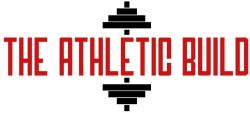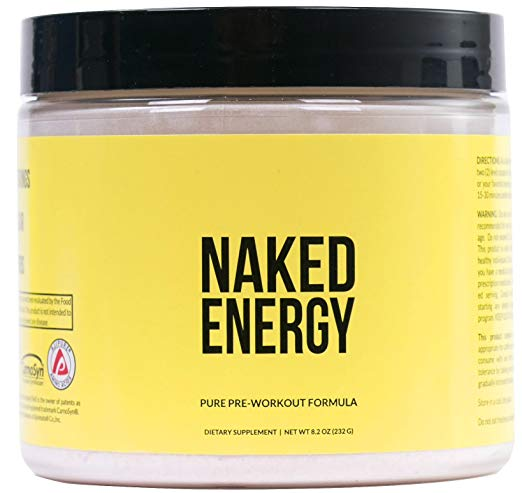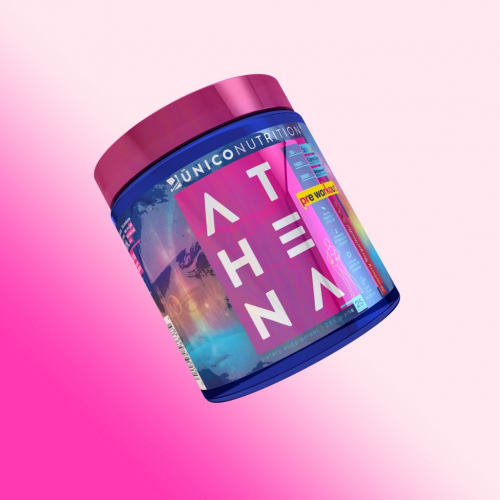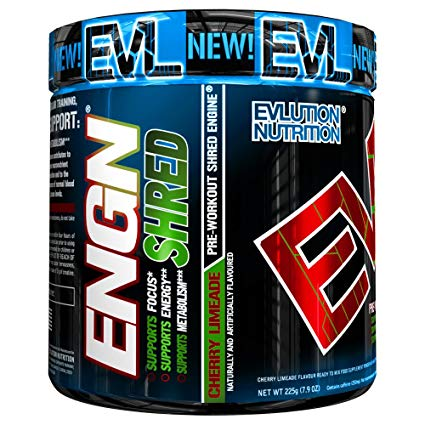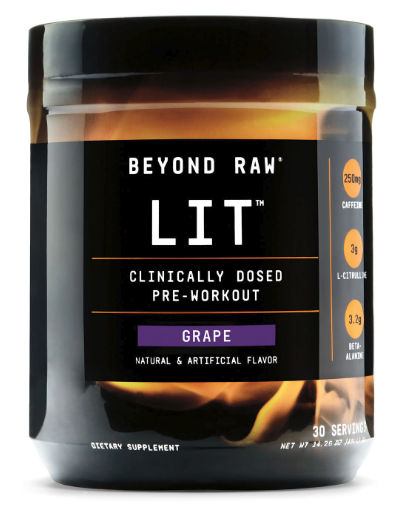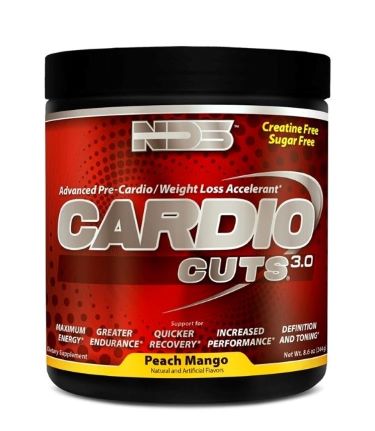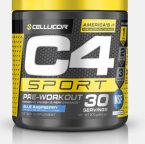Pre-workout products are full of a wide variety of ingredients. Since the FDA doesn’t strictly regulate supplement advertising claims, it’s tough to separate the genuinely useful stuff from the latest trendy junk.
The ingredients listed here are the ones with the longest and best body of scientific study backing them. These are the ingredients to look for if you want to be sure your pre-workout is doing what you want it to do.
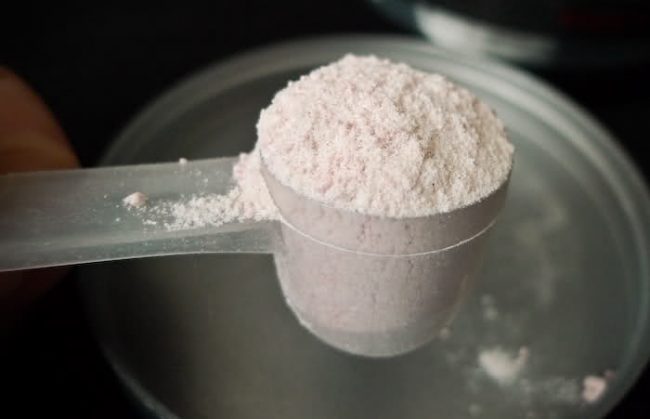
What is a Pre-Workout Supplement?
Before we get started on the ingredients we should quickly go over what a pre-workout supplement is.
A pre-workout supplement is taken 15-30 minutes prior to your workout and is meant to improve your workout experience. Benefits of pre-workout supplements include:
- Increased energy
- Increased muscle building
- Enhanced focus and concentration
- Better endurance
- Increased fat burning
- Faster recovery
It’s safe to say that no two pre-workout supplements are alike. The reason behind this is that each pre-workout has its own set of ingredients that help in various ways to help you meet your individual goals. For example, pre-workout A may offer improved muscle pump and limitless energy while pre-workout B may offer increased metabolism and enhanced focus in the gym. Therefore you will need to look closely at the label and ingredients to see which will work best for you..
What to Watch Out For in a Pre-Workout?
Caffiene
When it comes to pre-workout supplements you definitely want to watch the amount of caffeine they have in them. Some can have over 400mg per serving which is more caffeine than 2 Monster Energy drinks. If your body isn’t used to that amount of caffeine it can cause jitters, anxiety and even heart palpitations. Be sure you know how much caffeine is in your pre-workout.
Proprietary Blends

Another thing to watch for is proprietary blends. These are becoming quite a problem in the supplement industry and are something to watch out for if you can.
A proprietary blend is where the manufacturer mixes a bunch of ingredients together into what they call a blend. The problem is they only tell you what the total size of the blend is and not how much of each ingredient is in the blend and there is no way for you to find out. Do they do this so you don’t know there are underdosed ingredients in there or to keep their formula safe so competitors? Probably both I would imagine but if you are buying their product and putting it in your body you should know what you are getting especially if you are looking to avoid side effects.
There are also a lot of companies making proprietary blends so avoiding them can be a challenge but if you can avoid it you should.
1) Central Nervous System Stimulants
Regardless of what you’re using them to accomplish, the one universal feature that people expect from pre-workouts is a burst of energy and motivation. If you’re an endurance athlete, you might not care about muscle volume or fat burning, but you’re looking for that kick in the pants to get you up and into your cardio routine.
Caffeine
Caffeine is far and away the safest available stimulant for the central nervous system. That doesn’t mean it’s completely harmless; there are doses known to be toxic, even lethal, but these are so large that even the biggest coffee addicts won’t ever come close to them. For perspective, the widely accepted lethal dose of caffeine is at least 150mg per kilogram of body mass. There is only 90mg in one cup of coffee, and most responsible pre-workout supplements top out at around 300mg per dose. Caffeine just becomes dangerous if you’re working with powder that hasn’t been weighed and measured correctly, or if it’s combined with other potent stimulants.
It is relatively easy to overdo caffeine intake and experience unpleasant symptoms, however. For most people, ingestion of more than 400mg at one time or more than one gram total in a day can cause a nasty jittery sensation, headaches, gastrointestinal distress and anxiety among other symptoms. Exact amounts will vary, as sensitivity to caffeine is individualized.
Caffeine has no nutritional value, but it’s the cheapest and safest option for a sustained burst of energy and focus. Most people do gradually build a tolerance to it, but they can reverse this effect by progressively reducing consumption for about two weeks.
Heavier CNS Stims
Just about every other effective stim in pre-workout products should be approached with caution. Many do the job of providing an energy burst, but none are as well-studied as caffeine is and some have outright been demonstrated to be dangerous.
One typical example is DMAA. This geranium extract is a potent CNS stim that has long had a murky legal history due to association with heart attacks and seizures. Despite being formally banned by the FDA for years, several supplement manufacturers continued to sell it. The FDA took decisive action against these manufacturers in 2017, however, conducting raids and even making arrests in at least one case.
Another controversial stim commonly seen in pre-workouts is synephrine, also called “bitter orange extract.” Synephrine is an altered version of ephedrine, a CNS stim that was quite popular in the 1990s and early 2000s. The FDA banned it after it was linked to over 150 deaths nationwide. Proponents of synephrine claim it is safer than ephedrine (as it does not have the same effect on blood pressure and heart rate), but both the United States and Canada have banned its use. Some studies do indicate that synephrine may have adverse cardiovascular effects such as increasing the risk of blood clotting.
These stims are useful in the sense that they will give you a burst of energy. A large sample of anecdotal evidence indicates they are probably safe for most people in reasonable doses for several years. The main issue with them is the lack of formal study, particularly as combined with other CNS stims (like caffeine). There just isn’t enough information available about known toxic doses, contraindications, and potential side effects to label them as “safe.”
Related: Top 5 Pre-Workout Supplements Without Caffeine – Stimulant Free
2) Muscle Support
The following ingredients provide support for working muscles, the raw materials needed to repair and build muscle tissue, and help to reduce feelings of fatigue and soreness.
Essential Amino Acids
Far more than just a pre-workout ingredient or a muscle enhancer, the nine essential amino acids are a basic daily dietary requirement needed to keep nearly all of your vital functions operating correctly.
If you’re already getting enough protein, you don’t need these in your pre-workout, although it certainly doesn’t hurt to take them. It’s always a battle for serious lifters to get adequate protein without also packing on too many fat and carbohydrate calories.
The one controversial point with essential aminos in pre-workouts is whether branched-chain amino acids (BCAAs) are helpful in isolation. BCAAs are the three essential amino acids that most directly contribute to muscle repair, and growth — leucine, isoleucine and valine. There isn’t any real evidence that taking BCAAs in isolation can hurt in any way, but there are some studies that indicate that they also don’t help very much without the other essential aminos also present when ingested. Therefore they are probably not valid as an equivalent serving of a complete protein.
Creatine
Creatine is a type of non-essential amino acid that the body can synthesize from the essential amino acids. Creatine is put to use by working muscles, and supplementation can give users a feeling of enhanced energy and reduced muscle fatigue, allowing them to grind out a few more reps or sets than they usually would. It has also been proven to build lean muscle and also increase strength and endurance.
Creatine is almost as well-studied as caffeine, with decades of research supporting its status as a useful supplement ingredient. Studies indicate that up to 5 grams per day are useful; beyond that, it’s probably a waste. Also, consider that creatine production increases when you take in protein, so if you are already eating a protein-rich diet, you will not need to consume as much as part of a pre-workout formula.
Personally, I feel that creatine is the most effective supplement for enhanced performance and I have had great success with it over the years. If I could only use 1 supplement it would be creatine.
Carnosine
Like creatine, the primary purpose of carnosine is to reduce muscle fatigue so you can get a few extra reps or sets. Carnosine is a compound centered around the non-essential amino acid beta-alanine. Exercise studies of beta-alanine and related compounds only just began a little over a decade ago, but what evidence is available indicates that supplementing with carnosine is more efficient than taking beta-alanine in isolation specifically for muscle tissue support.
Betaine Anhydrous
Betaine Anhydrous is a chemical that occurs naturally in the body and can also be found in some foods like spinach, seafood, and beets. This ingredient is another proven muscle builder that has been shown to reduce fatigue when taken before weight training. Another study found that it increased the total number of repetitions on the bench press versus a placebo. And finally, this study found that betaine significantly increases HGH and IGF-1 while also decreasing cortisol in bodybuilding men.
Related: Best Pre-Workout Supplements for Muscle Gains

3) Nitric Oxide (NO) Enhancers
Also commonly called “pump enhancers,” nitric oxide-boosting ingredients are included to temporarily make muscles look more prominent and increase vascularity (make the veins prominent). They don’t have any permanent effect on the muscles; they’re just an aesthetic boost that usually lasts for one to two hours after your workout.
Citrulline
Citrulline directly stimulates the production of nitric oxide, and studies have found that it works better than similar ingredients such as arginine. It will usually appear on a label as l-citrulline in the ingredient list. Citrulline malate is a modified version that is superior due to providing extra energy and fatigue-fighting qualities.
Nitrates (
The body directly converts nitrates into nitric oxide. Potassium, arginine, and creatine are the standard forms of nitrates. Potassium nitrate is easily the most inexpensive and therefore is well-studied. It’s also the preservative ingredient in cured and processed meats that gives them their red hue. Beetroot juice is a popular nitrate ingredient that falls into this category and can provide wicked muscle pumps.
Related: Best Nitric Oxide Supplements

4) Metabolism Boosters
Metabolism accelerators in pre-workout products are also sometimes called “fat burners,” though that is a misleading name. It’s true that some of these ingredients will cause you to burn more calories while at rest, but the increase is so trivial that it won’t help you to lose weight if you stay sedentary. These ingredients are meant to add an extra boost to fat burned through workouts, particularly the lipolytic agents that mobilize stored fat for use as energy.
Capsaicin (Cayenne Pepper)
Capsaicin is the thing that makes hot peppers spicy, and decades of study have shown it temporarily boosts the metabolism as well as reduce appetite. However, you need to take more of it than most people typically get from food (about 1 gram per day at a minimum). You’ll see it most often in pills because it’s tough to put that much of it into a powder that won’t make the formula taste disgusting.
L-Carnitine
L-carnitine is a non-essential amino acid that helps to regulate blood sugar, and many studies have shown that it also helps to engage stored body fat for use as an immediate energy source. Studies that demonstrated this effect were done using 1 to 2 grams per day.
This list might seem brief, but that’s because it’s limited to ingredients studied enough to show their effectiveness at proper doses. Many other promising elements may work well, but they’ll need more study before suppliers can ethically advertise them as such.
Related: Best Pre-Workout Supplements for Weight Loss

5) Focus and Mood Enhancers
Lastly, we have the pre-workout ingredients that help you focus during your workout. If you want laser focus for a killer workout then make sure your pre-workout has these ingredients.
L-Theanine
This ingredient is an amino acid that is found primarily in tea leaves. L-Theanine, when combined with caffeine, has been shown in studies to improve attention as well as improve memory and reaction time.
This study found that L-Theanine reduced stress and caused relaxation without affecting energy levels or attention.
Be sure your pre-workout that uses L-Theanine also has caffeine or you will not get the same effect, these 2 ingredients work together.
Rhodiola Rosea
This ingredient is a Scandinavian herb that is used in traditional Chinese medicine. This herb has been shown to boost cognition vs placebo, and also fight depression, and it was shown to reduce stress and improve overall well being.
If you ever find yourself not in the mood to workout Rhodiola Rosea can help you improve your mood and have a positive outlook for better productivity and focus.
N-Acetyl L-Tyrosine
This ingredient is an acetylated version of the amino acid L-tyrosine. This acetylated version gives it better absorption rate and effectiveness than you would have with regular L-Tyrosine and it is, therefore, the preferred version.
L-Tyrosine has been shown to reduce the effects of stress and allow for greater mental focus and endurance. It has also been shown to improve memory in stressful situations.
Mucuna Pruriens
Mucuna Pruriens is a type of legume found in the tropics that has been shown to bring about a calming “peace of mind” feeling. It is also used quite frequently is testosterone boosters because it has been shown to reduce cortisol levels which leads to an increase in testosterone,
Wrapping it up
Hopefully, this analysis has helped you gain a better perspective of what goes into your pre-workout supplement and what you should be looking for when it comes to the ingredients. Obviously, not all pre-workout supplements are the same and you should look for a pre-workout that is designed to match your fitness goals.
Also, it should be noted that these supplements are not miracle workers, you still need to put your work in at the gym. Just taking these or any other supplements by themselves is a waste of time and money.

Ryan is a former college wrestler and lifelong fitness fanatic. He has run half marathons, done mud runs, placed in body transformation contests, coached wrestling, and now coaches girls’ soccer. Not to mention he has also tried literally hundreds of supplements over the years and has a vast and thorough supplement knowledge. He has written for Muscle & Strength, Testosterone Junkie, The Sport Review and other publications. He is also the editor-in-chief of this website and has over 25 years of experience in the fitness industry. Feel free to connect with him on his LinkedIn page below.
